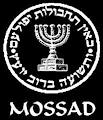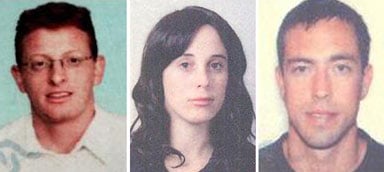Ex-Mossad Agent: Israel Uses ‘False Flag’ in Most Operations to Avoid Suspicion in Arab States
Mossad 'Regularly' Faked Australian Passports

This article was published by Global Research on March 30, 2010.
Israel’s Mossad has regularly faked Australian passports for its spies, an ex-agent said on Thursday, as anger grew over the use of foreign travel documents for an alleged assassination.
Former Mossad case officer Victor Ostrovsky told ABC public radio that the spy agency had used Australian passports for previous operations before last month’s assassination of a top Hamas commander in Dubai that has been blamed on Israel.
He said agents had little trouble passing themselves off as Australians as few people in the Middle East have much knowledge about the country.
“Consider the fact that Australians speak English and it’s an easy cover to take, very few people know very much about Australia,” he said.
“You can tell whatever stories you want. It doesn’t take much of an accent to be an Australian or New Zealander, or an Englishman for that matter.
“And I know people had been under Australian cover not once (but) quite a few times. So why not use it (again)?”
 Australia summoned the Israeli ambassador and warned that the countries’ friendly ties were at risk after Dubai police named three Australian passport-holders in a list of new suspects in the murder of Mahmud al-Mabhuh.
Australia summoned the Israeli ambassador and warned that the countries’ friendly ties were at risk after Dubai police named three Australian passport-holders in a list of new suspects in the murder of Mahmud al-Mabhuh.
Britain, Ireland, France and Germany expressed similar outrage after people holding documents from their countries were also linked to the January 20 killing in a luxury Dubai hotel.
Israel has previously dismissed claims from Ostrovsky, who is now an author and has detailed various accusations against the country in his books.
He said Mossad prefers to use “false flag” passports as Israeli papers frequently invoke suspicion in the Middle East.
“They need passports because you can’t go around with an Israeli passport, not even a forged one, and get away or get involved with people from the Arab world,” he said.
“So most of these (Mossad) operations are carried out on what’s called false flag, which means you pretend to be of another country which is less belligerent to those countries that you’re trying to recruit from.”
Ostrovsky said Mossad had a “very, very expensive research department” dedicated to manufacturing the fake documents which simulates different types of paper and ink.
“If they create a passport at a top level for use of that nature… I don’t think anybody will be able to find the difference,” he said, adding there was no chance any of the people named as suspects were Mossad agents.
“Except for James Bond, who actually pronounces or announces his arrival at the scene by saying, ‘I’m Bond, James Bond’, most people who work in the intelligence field don’t present themselves by their real name,” he said.
The Australian newspaper said Ali Kazak, a former Palestinian representative to Australia, had warned in 2004 that a Mossad agent in Sydney had obtained 25 false Australian passports.
In March 2004, two suspected Mossad agents were arrested in New Zealand and later convicted for fraudulently trying to obtain passports from the country, prompting diplomatic sanctions.
Copyright Middle East Online 2010

